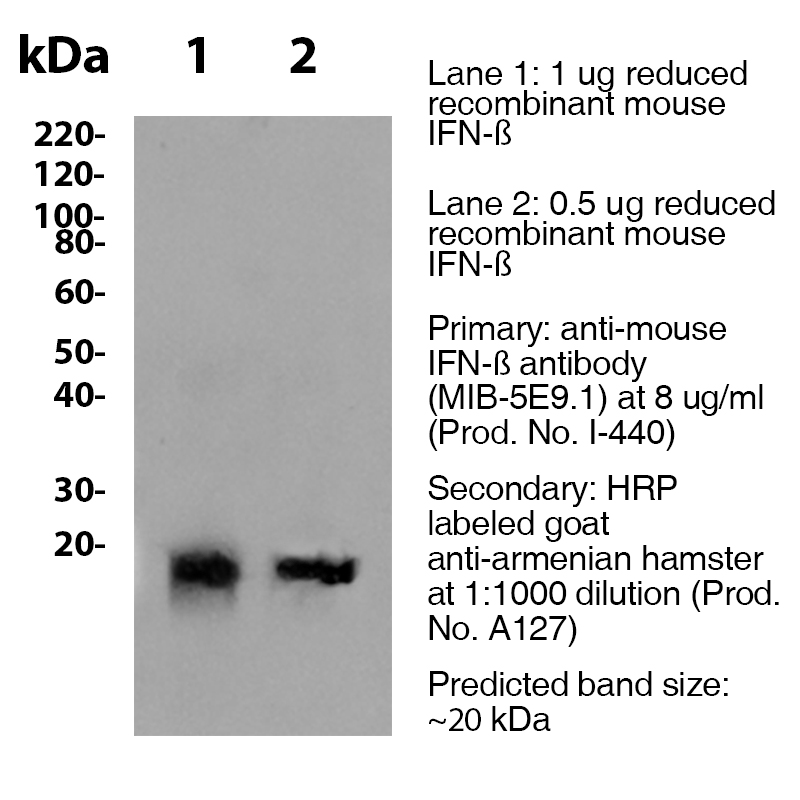Anti-Mouse IFNβ - Purified
Product Code:
LEI-I-440
LEI-I-440
Host Type:
Hamster
Hamster
Antibody Isotype:
IgG
IgG
Antibody Clonality:
Monoclonal
Monoclonal
Antibody Clone:
MIB-5E9.1
MIB-5E9.1
Regulatory Status:
RUO
RUO
Target Species:
Mouse
Mouse
Applications:
- Neutralisation
- Western Blot (WB)
Shipping:
Ambient
Ambient
Storage:
This purified antibody is stable when stored at 2-8°C. Do not freeze.
This purified antibody is stable when stored at 2-8°C. Do not freeze.
No additional charges, what you see is what you pay! *
| Code | Size | Price |
|---|
| LEI-I-440-50ug | 50 ug | £148.00 |
Quantity:
| LEI-I-440-500ug | 500 ug | £262.00 |
Quantity:
Prices exclude any Taxes / VAT



